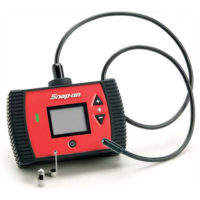Snap-on Industrial Aerospace Tools, Maintenance Kits, FOD Prevention, Tool Control and Tracking Systems

Since 1920, Snap-on Industrial’s commitment to the aerospace industry has been built on the belief that every single mission is critical. We have surrounded the finest tools with uniquely innovative solutions for FOD prevention, tool control, tool accountability, lean process design, and safety.
From aircraft manufacturing to space shuttle repair, our knowledge is your key to increased productivity, efficiency, and safety, such as recommending more efficient tools for an existing assembly line to partnering with your engineers to design the tooling requirements for complex new operations.
Today, Snap-on has more than 35 manufacturing plants around the world producing top quality tools and workshop equipment. There are more than 11,500 Snap-on associates whose mission is to produce the finest products of their kind for every application.
Aircraft manufacturing
The Snap-on Level5 Tool Control System and TCMax Tool Control Software, complete with computer touch screens, are used in the final assembly of Airbus Military A400M at EADS-Casa in Seville, Spain. High-quality Snap-on tool storage units are an integral part of the installation, providing safe, secure storage that is durable, functional, and attractive.
Special aerospace tools
We design and manufacture special tools, even one-offs and small batches, for specific and often unique applications, such as long-reach ratchet shafts with lock-on sockets for working deep inside engine compartments.
Rocket assembly
United Launch Alliance is a world leader in space operations. They use Snap-on tools, Level5 and TCMax systems in the assembly of Delta IV rockets. The Delta launches have had no Foreign Object Damage (FOD) related to tool losses thanks to the highly effective tool accountability provided by the TCMax software suite.
Aeroprobe tool detection system
A misplaced tool can be the greatest threat to aircraft safety and flight readiness. Numerous hours can be expended searching for misplaced tools. One installation reported at least a 60% drop in man hours searching for tools after using the Aeroprobe system. It gives each tool an electronic identity and provides a detection system which can quickly locate a missing tool within an aircraft’s structure.
Tools@Height drop prevention system
The Snap-on Tools@Height safety system stops dropped tools harming personnel, causing damage or disrupting work. The system provides controlled storage of tools, secure transportation of tools to the worksite and reliable retention of tools during use.
High-level uses include working on overhead gantries, wind turbines, cranes, buildings, bridges, masts, power lines, drilling derricks, etc.
Low-level uses include stopping tools falling into fuel rod cooling ponds, machinery, production lines, water filter beds, mine shafts, etc.
Excellence in Education training programme
For over 80 years Snap-on has been the choice of the professional tool user, and is today the brand of choice for aspiring aerospace technicians and engineers. Our Excellence in Education programmes are designed to fully support students, colleges and training establishments.
Products and Services
Video
White Papers
Related Projects

Airbus Breakthrough Laminar Aircraft Demonstrator in Europe (BLADE)

Hispasat 36W-1 Advanced Generation (AG) 1 Communication Satellite

Volocopter VC200 Ultra-Light Helicopter

Astrosat Space Observatory
Press Release
Our new BK6000 Digital Borescope offers unlimited uses for inspecting and photographing those hard to see places. With the BK6000, technicians can diagnose problems more accurately and quickly, avoiding disassembly when not required, resulting in significant savings in time and effort.<
Read moreRegional Offices
38A Telford Way
Northants
Kettering
NN16 8UN
Other
United Kingdom














